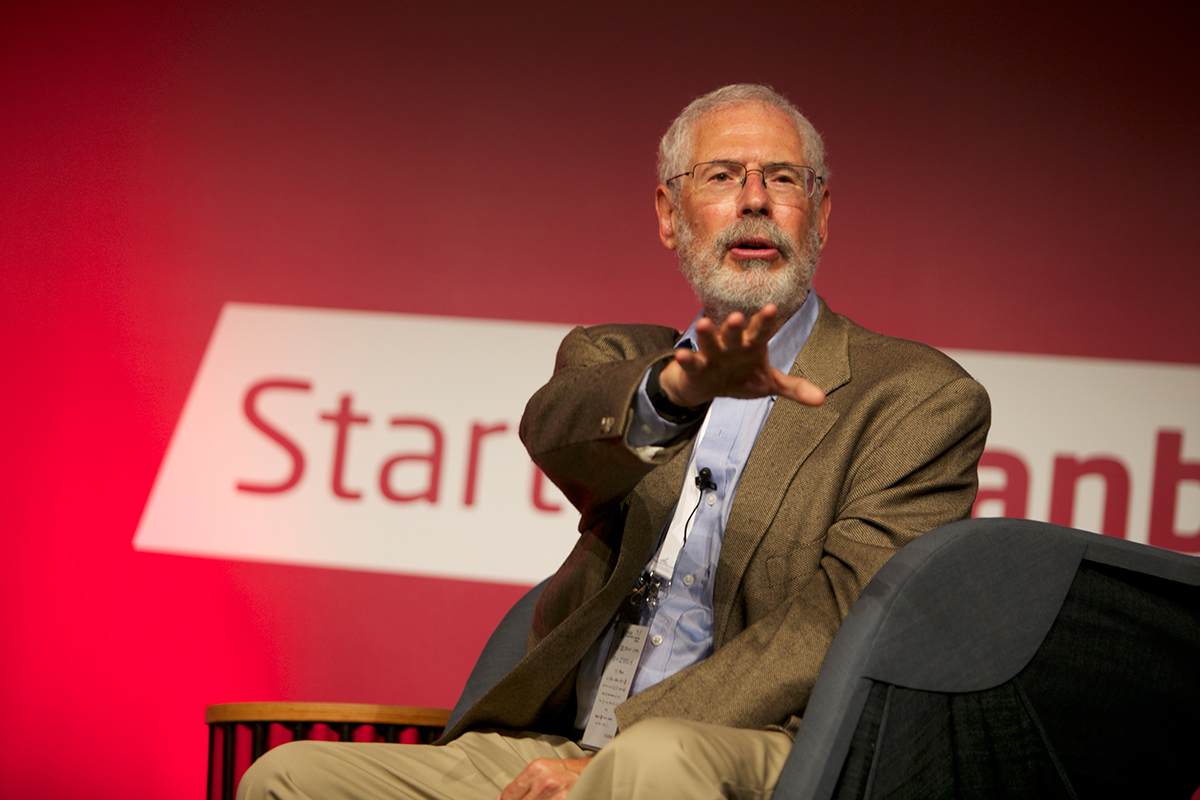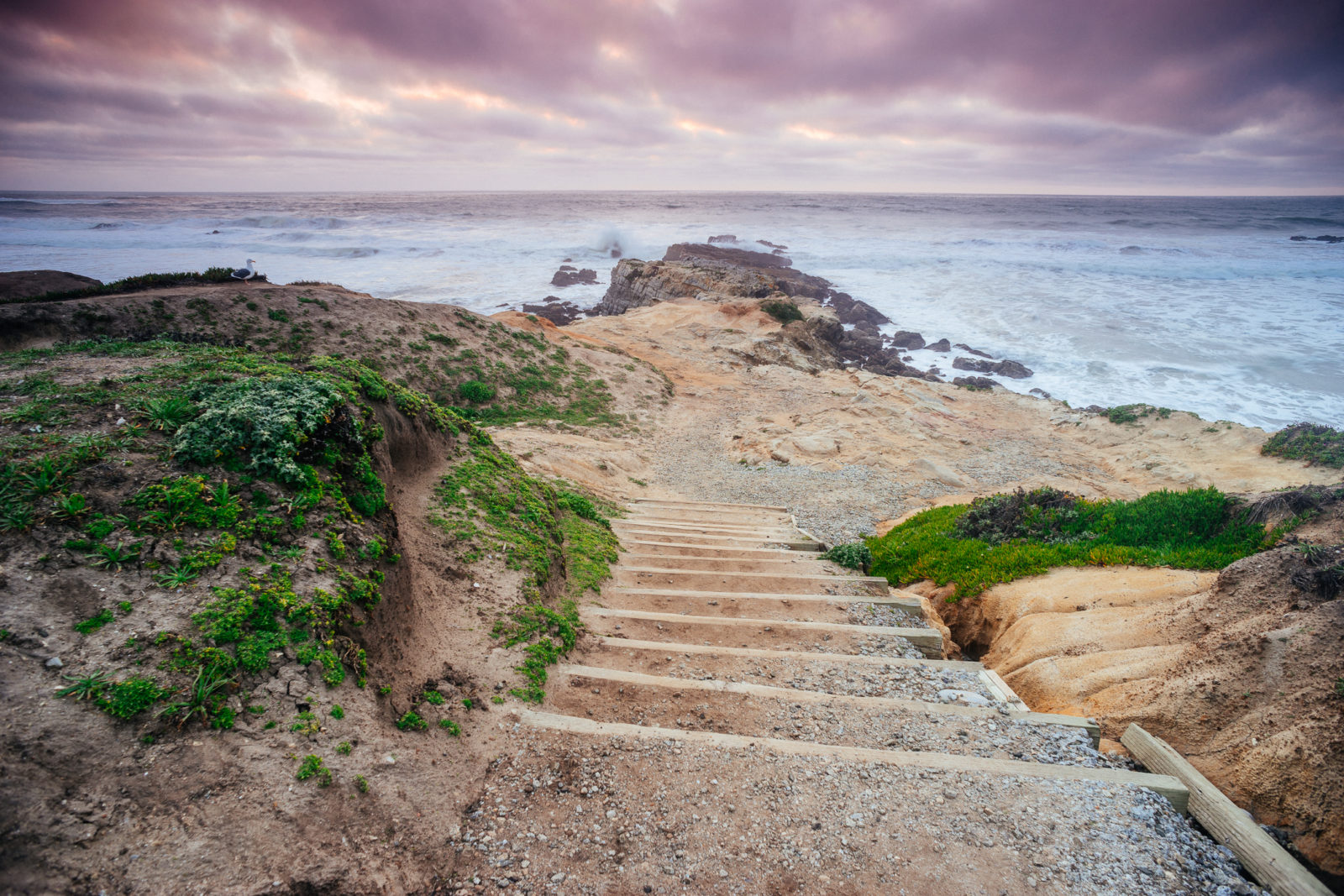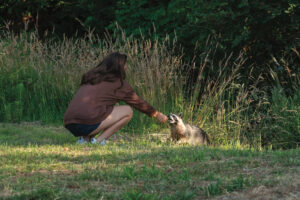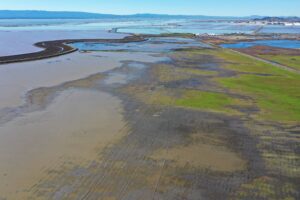Silicon Valley entrepreneur and former California Coastal Commissioner (from 2006-2013) Steve Blank will give the commencement speech at the UC Santa Cruz Rachel Carson College on June 15, with stories about what he calls when “truth and justice faced money and power.” An excerpt from the speech is below. This Q&A about the speech and Blank’s perspective on California conservation, entrepreneurship, and policy, has been lightly edited for clarity.
Eric Simons: I’d like to talk just a bit about where this speech comes from. So let’s start here: what’s your perception as someone who spent a career in Silicon Valley of the conservation world in California?
Steve Blank: The thing I remember most about my time serving on the Coastal Commission is [longtime Commission Executive Director] Peter Douglas’s comment, “The coast is never saved. It’s always being saved.” The minute you turn your head, the nature of the society we live in says it’s OK to extract maximum economic benefit from anything you own. That’s in real conflict with preserving the natural beauty of the state. We have an A/B comparison of the coast of Orange County versus San Mateo county. One’s a tragedy of the commons, the other is what happens when the government says, “No you can’t run unfettered capitalism on this part.” The coast that’s saved is the socialist capital of the United States.
Being a capitalist I found that quite amusing. I made my money in startups and I live on the coast.
Three other things I’ll observe. One, you can never take your eye off the ball if you’re in the environmental community. That’s how we lost [former Coastal Commission Executive Director] Charles Lester. The environmental community thought, “it’s been 35 years, and the coastal commission was the only state commission that hadn’t fallen victim to regulatory capture.” [Ed note: Regulatory capture is when interest groups lobbying an agency take over the seats of the agency itself.] And finally it did. Thirty-five years and the developers finally won, because the environmental community was exhausted.
Two, it also taught me it’s the extremes that define where the center is. The crazy people show you where the boundaries are, and it tends to steer where the norm is.
Three, the coast is a contradiction between a capitalist tragedy of the commons and socialism, and all for the benefit of 40 million Californians. The stretch between Half Moon Bay and Cambria is unmatched anywhere in the world. It’s just amazing. And — this is what I told the governor when I resigned: People don’t appreciate we’ve run a 40-year science experiment unique in the world.
ES: There’s a lot of talk in the science world about the idea of an information deficit not being to blame for why the world isn’t taking action — that facts don’t necessarily change minds, or that you have to communicate with people where they are rather than just present them more information. There are echoes of that in your speech, and I’m interested in how you’ve seen that work in your own life.
SB: My career was in Silicon Valley. Back when I was a marketeer, it wasn’t consumer apps. It was trying to explain and market microprocessors to your mother. I’m from this world of engineers who love data, versus trying to create passion out of that data.
The bad news about Peter Douglas and the culture he built, he was a lawyer. All the staff reports, because 10 percent of them ended up in court, were written like legal briefs. To this day, they don’t even own Powerpoint, let alone use diagrams or pictures. That was great in the courts but it made us quite insular as a commission. It walled us off from explaining to the general public what our positions are.
The Pacific Legal Foundation, the conservative legal group that would challenge the commission for property rights all the time, they were able to communicate the heart of the issue for the other side. We failed to do that consistently. And it really is a detriment to saving the world. You just kind of explain, “There’s going to be extinction in 90 years of species X or Y. It’s obvious why people should care.” Well, not really. People are worried about their mortgage, about their paycheck. While that’s a failing of human beings, it is a failing of human beings.
ES: And it seems like this is some of the motivation for your speech.
SB: I used to tell my girls when they were young and playing sports, you stand at the edge of that soccer field and make sure the other team is not carrying sticks and playing lacrosse. It’s a metaphor for what we’re doing here: make sure you know what game you’re playing.
[When I joined the Coastal Commission] I was 45, 50 years old, I didn’t even know what a lobbyist was. Who are you guys? What are you doing here? Turns out they do everything.
ES: There’s a pretty common complaint in the conservation nonprofit sector here that there are all these conservation problems in the Bay Area where the only thing missing is money, and here we are awash in tech money and the companies won’t give back. How do you see that?
SB: I was on the board of the Peninsula Open Space Trust. Audrey Rust was my role model in figuring out how to communicate the big idea. How to build relationships with people who wrote $100 million checks, back when that was a lot of money. This is a valid complaint of every environmental group, but it’s also an observation that I don’t think you’ve figured out who to touch and how to touch them.
POST is starting to get pretty good at it. I’ve seen them go, “Oooh, let’s take them out to the coast, take them out to the Bay. Let’s not just tell them why this is important, let’s remind them!” When [potential tech donors are] sitting in traffic on Highway 101, in a bus from the city, remind them what’s 15 miles away, and that that stretch of coast doesn’t look like a national park by accident.
I was an entrepreneur and now teach entrepreneurship. I teach that entrepreneurs are everywhere, entrepreneurial culture is everywhere, but risk capital, capital at scale for startups, is probably only 10 places in the world. It’s the same about saving the coast. That unique combination of land trusts, regulatory stuff, open space agencies, and environmental groups only existed here. I got lucky enough to sit on at least two of those groups, being right in the middle of it. This commencement speech was really a reflection. It’s the fifth or sixth commencement speech I’ve given. Usually I talk about entrepreneurship, you know, do your best. But given who these students are, the name of the college, I thought about talking about how the sausage is made.

Excerpt from Steve Blank’s UC Santa Cruz Rachel Carson College Commencement Speech
June 15, 2019
I think it’s altogether fitting and proper that in a college named after Rachel Carson, to share four short stories of what happened when truth and justice faced money and power in the seven years I served as a public official on the California Coastal Commission.
My first story is that the smartest person in the room is almost never the most effective.
One of the things I loved about being a coastal commissioner was how much I learned. Coming out of Silicon Valley and the tech world, I was a complete novice on how policy gets made. So, I had to read the Coastal Act, the Coastal Regulations, and enough law to understand the positions our staff took and what the applicants were contending. And each month I’d have to read through 100 staff reports to figure out how to vote. Deciding between the applicants, their lobbyists, the environmental community, the staff, the Coastal Act and the law.
Meanwhile, while I was reading everything, I noticed that one of the other commissioners was reading nothing, not the staff reports, not the coastal act, not the law. In fact, all he could do was count to seven. And that ability to count to seven made him the most effective commissioner.
Why? Because out of 12 commissioners, seven is the number needed to win a majority in a vote.
While I was the master of the facts and data, he was calling in favors, cajoling others, and building a coalition to get the majority of commissioners to see the world his way.
So, my first lesson is: You don’t need to be the smartest person in the room to be the most effective. Being effective means not just mastering the facts but figuring out how to move your agenda forward.
My second story is about the power of Misdirection over the truth. Magicians use misdirection all the time: they sweep off their top-hat, you fixate on it, and all of a sudden, their assistant standing next to them disappears.
I got to watch a magic act unfold before my eyes when real estate developers made eight office buildings totaling ¼ million square feet — twice the size of a Wal-Mart — disappear. How?
The developers wanted to build office buildings in an area zoned for farmland. Traffic from this huge project would have filled local roads not designed for this density and would impact the public’s access to the beach. Given that on the face of it, this project violated all kinds of laws, how did these developers make it disappear and get unanimous approval from the county’s Board of Supervisors?
Their solution was brilliant – and evil. They proposed that after building these eight office buildings, they would build a housing facility for 57 developmentally disabled adults. They convinced the dedicated, deserving and passionate parents of this group that this project was the only hope these families would ever have to secure housing for their children (neglecting to tell them they had located the housing for the disabled in a tsunami inundation zone).
Naturally these parents became vociferous advocates for the project. They brought their disabled children to the hearings and did exactly what the developers had hoped – with not a dry eye in the house, no one could see the project anymore. The developer had moved the attention from a project that violated local and state zoning onto a small and deserving group of individuals. It was heartbreaking. And it was world-class misdirection.
The lesson here is that misdirection is designed to distract you from the truth. Obscuring a fact-based argument with a faith-based one is what demagogues do in policy and politics. See through it. Help others to see how this kind of misdirection distorts their perspectives.
My third story was about the day I learned to follow the money. One day all twelve of us coastal commissioners took a field trip out to a farm to look at a puddle.
An environmental group was suing a farmer over whether the big puddle that formed on his 400-acre farm after a rain was now a wetland. It took me awhile to learn that this distinction between a puddle and a wetland was worth a billion dollars.
The business model for real estate developers isn’t hard to understand — they buy farms and ranches then build houses and sell them off. And in California if you can build 1,500 houses on a 400-acre farm, that might be worth a billion dollars. Developers make their profit off the difference between the cost of the land and the net profit on the houses.
But one obstacle for California developers is that the Coastal Act says you can’t build on land that has been designated a Sensitive Habitat. So, if you’re a developer, having any land declared sensitive is a loss of potential revenue. In fact, it can kill the project. However, there is one loophole in those rules: if you’re a farmer you can plow under anything.
So as a consequence, real estate developers are great farmers. They buy out family farms for prices that far exceed what the farmers could ever get from selling their crops. And then they lease the land back to them so they can continue to farm. The developers invest in equipment so farmers can plant multiple crops each year, till each and every inch of their fields, and ensure those fields are perfectly level so no water can collect on the fields.
When I first ran into this I thought, “Wow what a great deal. The developers are great for the environment, they’re helping farmers by making all these improvements. It took me a year and lots of looking at puddles on farms for the dim lightbulb to go on over my head. Real estate developers couldn’t care less about farming or the crops.
The developers were keeping the farmers plowing the fields to make sure no sensitive habitat would appear. And the day a developer got the zoning approvals, the bulldozers would show up to start building the houses that would bury the farm. The lesson here was that when I was standing in the farm field, I wasn’t looking at a puddle — I was staring at a billion dollars — and I didn’t see it. So when you hear or see something that is too good to be true – follow the money.
It’s usually a long and winding road. My final story is: if you want to make change you have to learn to communicate and inspire others. In all these lessons, I’d be remiss if I didn’t mention the namesake of your school Rachel Carson.
You all study her work your first year here. You know she was a marine biologist at the U.S. Fish and Wildlife Service – only the second woman in the job — and she served as editor-in-chief of all its publications.
Her 1962 book, Silent Spring, launched the modern environmental movement.
The book’s title evokes a spring when all the songbirds died. It told the story of the damage caused by indiscriminate use of pesticides, especially DDT, to control insects. It educated a mass audience, most who had never seen a scientific paper in their lives, about how these chemicals entered the food chain, accumulated in the tissues of animals and ultimately made their way up to humans.
DuPont and other chemical companies threatened Carson’s publisher as well as the New Yorker and Audubon Magazine unless their planned Silent Spring features were canceled but nevertheless, she persisted. The book was a moral call to arms for people to take personal action.
Rachel Carson wasn’t first to raise concerns about DDT, but her impact was to communicate scientific evidence in a way that the general public could understand – she used facts to inspire others to take action.
In naming this college the donors said, “Carson, like UC Santa Cruz, epitomizes love of the natural world, ethical judgment based on sound scientific principles, and the persistence and courage to create change.”
Change happens when you can educate and inspire others — when you can use facts to create faith in what’s possible.
For those of you who will continue in the sciences or research, the easy part will be to write papers for your peers. The harder part is how you’ll explain “inconvenient truths” to people who may not want to hear them. How will you rouse an audience to action?





